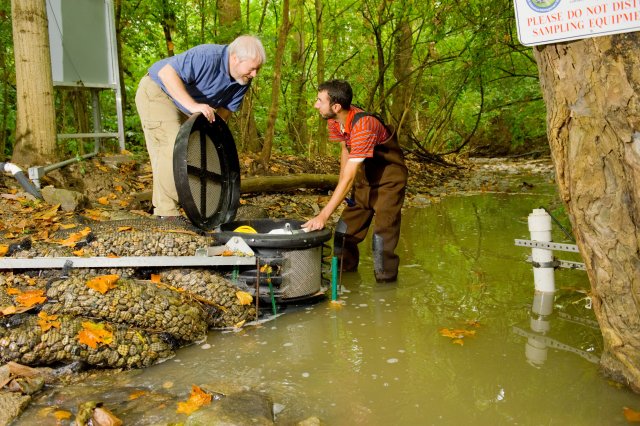Collaborating with EPA through the Federal Technology Transfer Act
Under the Federal Technology Transfer Act (FTTA), EPA can collaborate with external parties on research projects, and share research materials. These collaborations can lead to improved research outcomes, and often, the creation of new intellectual property. Intellectual property refers to ideas of the mind, such as inventions. This intellectual property can be protected under a patent.
Under FTTA, EPA can also protect confidential business information that is provided to us by research partners.
Research Partnerships with EPA through FTTA

EPA looks to partner with the following:
- Businesses
- Academia
- Trade associations
- State and local governments
- Foreign governments and businesses
- Individual researchers
You don’t have to be located near our laboratories to partner with EPA.
FTTA program partners benefit from cooperative research and development agreements (CRADAs) by utilizing EPA's resources and expertise to conduct joint research and technology commercialization.
Other benefits include:
- Access to EPA laboratory facilities.
- Collaboration with EPA scientists and engineers.
- Opportunities for licensing patented technologies and bringing new technologies to the marketplace.
There are also many benefits of cooperative research and development to the public at large. These include:
- Research projects that lead to better protection of human health and the environment.
- Federal Government research reaching the marketplace.
- Collaboration enhancing the quality of products.
- New environmental technologies getting into the field quickly.
Types of FTTA Partnerships
Cooperative research and development agreements (CRADAs): CRADAs allow for collaborative research among partners, and may involve the development or enhancement of intellectual property. New intellectual property that is developed under a CRADA can be protected, used by CRADA partners, and licensed. EPA can share a variety of in-kind resources, such as facilities, researchers’ time, and expertise. EPA cannot provide any direct funding to CRADA partners, but can accept funding toward the research from CRADA partners.
Materials Transfer Agreements (MTAs): MTAs provide a one-way transfer of research materials.
Materials CRADAs (MCRADAs): MCRADAs are a combination of an MTA and a CRADA. They involve a transfer of research materials, some collaborative research, and last for a year.
